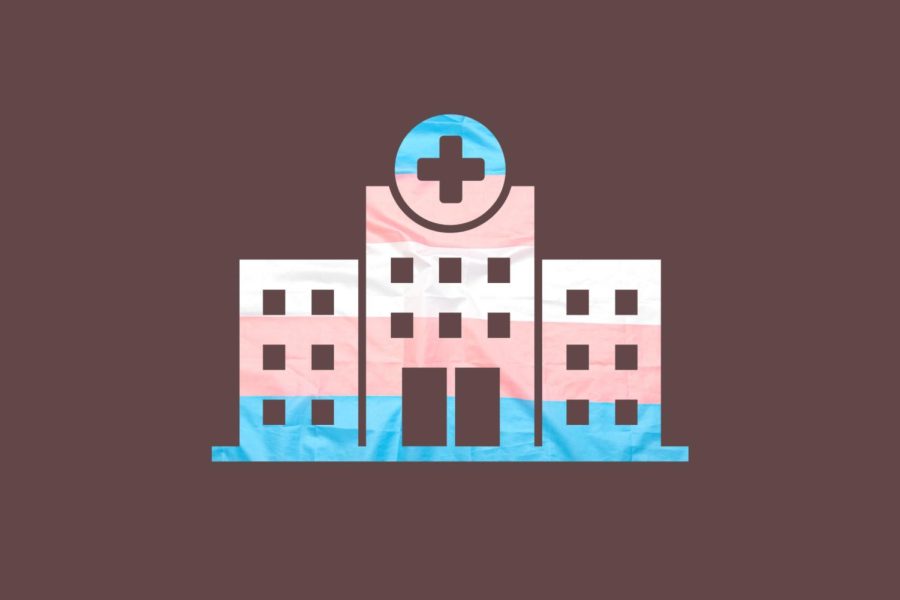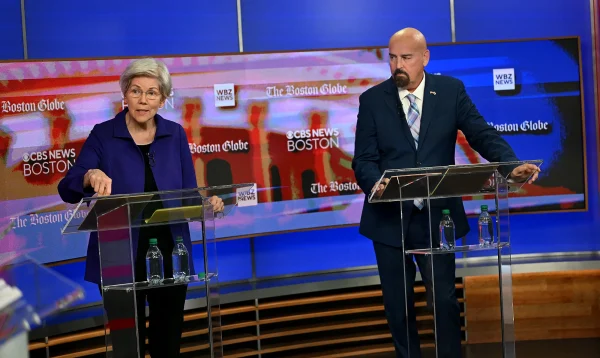As protests against trans-affirming care at Boston Children’s Hospital continue, Simmons’ Health Center notes possible impact on students
As reported by NBC, the hospital is the first in the United States to offer a transgender health program to pediatric and adolescent patients.
September 30, 2022
On Saturday September 18, nearly 200 people gathered outside of Boston Children’s Hospital (BCH). Holding pride flags and signs with slogans such as, “Protect Trans Youth,” and “Trans people belong,” they faced another, much smaller group on the other side of the street, holding much less welcoming signs.
This smaller group, consisting of less than 10 people, was there to protest against the gender-affirming care provided at BCH.
As reported by NBC, the hospital is the first in the United States to offer a transgender health program to pediatric and adolescent patients. According to the hospital’s website, the care provided includes top surgery and voice training (exercises meant to help those transitioning change the way they speak to better fit with their gender.)
Recently, BCH has received multiple threats of violence against hospital staff, including a bomb threat, due to the care they provide for transgender patients.
Although the bomb threats have been proven to be hoaxes, they still have affected hospital staff and transgender people.
Adam Glick is a licensed therapist and co-owner of LiveWell Therapy Associates in Boston. He specializes in helping LGBTQIA+ and genderqueer clients.
In a Zoom interview, Glick said, “I work to help people feel safe in the world… it’s very upsetting to me, and it’s scary for the people who work there because there is actual violence that is happening.”
He noted that the threats towards BCH made national headlines due to their reputation as a highly regarded hospital. U.S. News currently ranks it the best pediatric medical center in the country and has been top of the list more than any other hospital.
Glick mentioned that to him and his patients, the threats being made are close to home. It reflects a pattern of violence against trans people that he says seems to be on the rise. “It’s gotten more intense these last few years, specifically trans folks have been more targeted… [they’re] used as a punching bag.”
The Trans and Queer Defense Contingent, the group that organized the protest, said they were happy to see such a large turnout in support of transgender rights.
In a statement the Trans and Queer Defense Contingent said, “While things are getting worse, solidarity and community strength are growing. People need to be in the streets & to be demanding far more than just their basic human rights. Everyone in the streets agrees with one thing: it’s time for an actual revolution.”
With the protest happening so close to the Simmons campus, the Director of Health Promotion and Wellness and Chief Wellness officer at Simmons, Beth Grampetro, weighed in about how these threats affect the Simmons community.
According to her, college may be a freeing time for students where they can explore their gender identity, and the threats of violence are disruptive and unsettling. Grampetro urged students to come to the health center for any medical reason, emphasizing that it is a tool for students to utilize.
A Simmons student, Lillian Mela ‘26, attended the protest in support of trans rights, noting that it motivated her to show those protesting against gender-affirming care that it’s, “not how Boston rolls, that is not how we do things here, and that they weren’t welcome here.”










